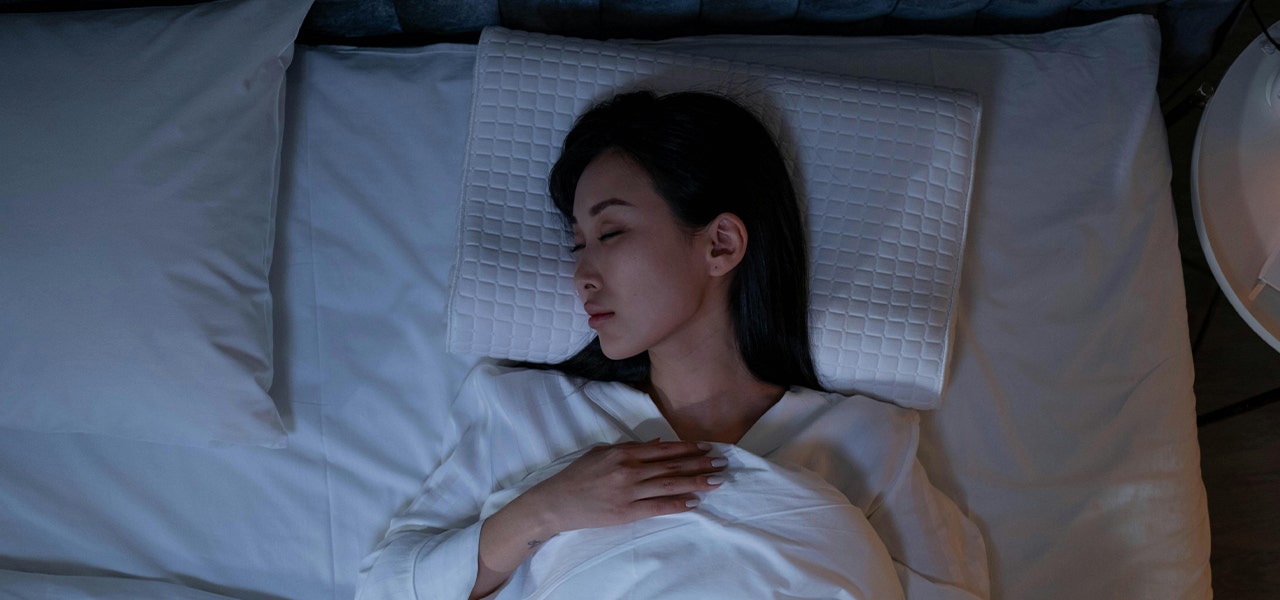
Imagine this: You're floating above rainbow-colored clouds made entirely of cotton candy, when suddenly, you realize none of this is possible, so you must be dreaming because this can’t be reality. You’re still asleep, but your brain “woke up” mid-dream and knows what’s going on. That surreal “aha!” moment? That’s lucid dreaming.
Lucid dreaming has always captivated curious sleepers because of the potential it provides. You could fly in the sky, meet mythical creatures, explore cities across the world – even fictional cities. The dream world is your oyster, so to speak. It blurs the line between real, waking life and your imaginative dream world. It might just be as close to real-life magic as we can get.
So, what is lucid dreaming, exactly? And how can you gain more control over your dreams? Let’s break it down.
What is lucid dreaming?
Lucid dreaming is when you know you're dreaming while you're dreaming. It’s like watching your own movie and realizing you’re the director.


Unlike a regular dream, where you're just along for the ride, a lucid dream lets you become aware of what’s happening. Some people have the ability to shape or control their dreams, but simply realizing you’re dreaming while dreaming is enough to qualify as a lucid dream.
That’s the basic lucid dreaming definition: awareness during a dream. If you’ve been wondering “what is a lucid dream,” now you’ve got your answer. Studies show that 55% of people have experienced at least one lucid dream in their lifetime. That’s a huge part of the population, so you might have even had one without realizing it!
Why does lucid dreaming occur?
Lucid dreaming and its meaning can be interpreted in lots of ways, and depending on who you ask, even the definition of lucid dreaming can look pretty different. So, what are lucid dreams all about, really? Some see lucid dreams through a spiritual lens, while others take a more scientific approach, and like with most topics, you could even see it from both sides.
Those who are more spiritually inclined see lucid dreams as a chance to reflect, grow or reconnect with their inner selves. Kind of like night school, but for your brain! In theory, you could practice skills, overcome fears, unlock creativity and more. Since it’s your dream world, there’s really no limits except what you put there yourself.
From a scientific standpoint, lucid dreaming is linked to REM (rapid eye movement) sleep. During the REM stage of the sleep cycle, you’re essentially in a hybrid state of consciousness. You are still asleep but your brain is just as active as if you were awake. Studies focused on lucid dreaming reveal unique brain activity patterns including higher levels of physiological activity than “regular” REM sleep. It’s proof your brain works harder while lucid dreaming compared to REM sleep without lucid dreaming.
Lucid dreams can be meaningful in lots of different ways whether you lean more spiritual or scientific. (But no matter which way you look at it, you have to admit lucid dreams are pretty cool!)


Lucid dreaming and sleep health
Lucid sleep might be a wild experience, but let’s be real – lucid dreams aren't a free pass to skip the good stuff like deep, restorative sleep that your body and brain needs. If anything, lucid dreaming and sleep hygiene should work together, not compete.
Because lucid dreaming happens during REM sleep, it’s light sleep involving a lot of activity (for your brain and body). This stage is when we dream most vividly, but it’s not the same as the deep sleep you need to repair and recharge. And if you get too focused on lucid dreaming? It could actually interrupt your rest.
When practiced mindfully, lucid dreaming could offer up some great perks! Some studies suggest it could help with emotional regulation, anxiety reduction and boosted creativity. Some early studies also suggest lucid dreaming and mindfulness complement each other and could be a way to feel more in tune with thoughts and emotions.
Bottom line: if you’re getting quality sleep and feeling rested, there’s no harm in inviting a little lucid magic into the mix.
How do you have lucid dreams?
Let’s get to the good stuff – how do you have lucid dreams in the first place?


Here are a few starter techniques to help kick off your lucid dream journey:
- Reality checking: This is to test if you’re in a dream or not and get your mind used to the idea that you can’t always assume you’re awake. Make it a habit of asking yourself “Am I dreaming?” Then, try looking at a clock or reading text, then checking again. If it changes, that’s your cue you’re in a dream.
- Dream journaling: Write down your dreams first thing in the morning. The more you write down your dreams, the better your dream recall will get and it will make patterns easier to spot.
- MILD technique: That’s short for Mnemonic Induction of Lucid Dreams. Basically, you repeat a phrase like “I’ll realize I’m dreaming” as you're falling asleep to help spark awareness later.
- Wake Back to Bed (WBTB): Wake up after 5-6 hours of sleep, stay up for a bit, then go back to bed. You’ll likely hit REM faster, which increases your chances of having a lucid dream.
It might take a few tries – and a little patience – but with consistency, you’ll improve your chances of recognizing and enjoying lucid dreams.
Lucid dreaming tips for better sleep
If you’re serious about trying lucid dreaming, your sleep environment matters. A calm, comfy bedroom can make all the difference when it comes to falling into deeper, dream-filled sleep.
At Happsy, we’re big believers in creating a sleep space that feels good and does good. That means certified organic materials without unnecessary chemicals, and a mattress that supports your body (and the planet!) while you snooze. A more peaceful, healthier sleep setup can make it easier to drift off – and maybe even help make lucid dreaming more accessible.
Lucid dreaming isn’t some mystical skill reserved for a chosen few. With a little curiosity, intention and consistency, it’s something anyone can try. Patience and practice are essential though, so you might as well go get started tonight!


